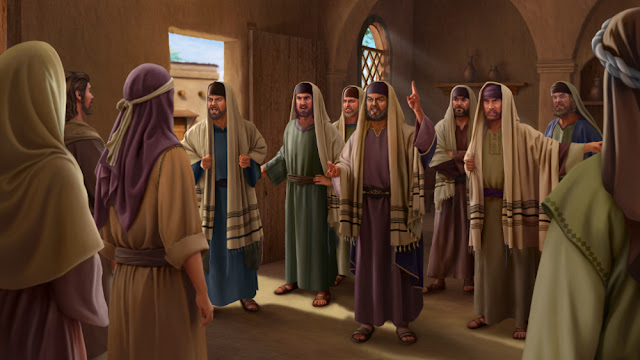III. On the Truth of the Incarnation
25. The work done by the Spirit is implied and unfathomable, and it is fearful and unapproachable to man; the Spirit is not suited to directly doing the work of salvation, and is not suited to directly providing life to man. Most suitable for man is to transform the work of the Spirit into an approach that is close to man, which is to say, what is most suitable for man is for God to become an ordinary, normal person to do His work. This requires God to be incarnated to replace the work of the Spirit, and for man, there is no more suitable way for God to work. Among these three stages of work, two stages are carried out by the flesh, and these two stages are the key phases of the management work. The two incarnations are mutually complementary and perfect each other. The first stage of God’s incarnation laid the foundation for the second stage, and it can be said that the two incarnations of God form one whole, and are not incompatible with each other. These two stages of God’s work are carried out by God in His incarnate identity because they are so important to the entire management work. It could almost be said that, without the work of the two incarnations of God, the entire management work would have ground to a halt, and the work of saving mankind would be nothing but empty talk. Whether or not this work is important is based on the needs of mankind, and the reality of mankind’s depravity, and the severity of Satan’s disobedience and its disturbance of the work. The right one who is up to the task is predicated upon the nature of his work, and the importance of the work. When it comes to the importance of this work, in terms of what method of work to adopt—work done directly by the Spirit, or work done by God incarnate, or work done through man—the first to be eliminated is work done through man, and, based on the nature of the work, and the nature of the Spirit’s work versus that of the flesh, it is ultimately decided that work done by the flesh is more beneficial for man than work done directly by the Spirit, and offers more advantages. This is God’s thought at the time to decide whether the work was done by the Spirit or by the flesh. There is a significance and basis to each stage of work. They are not groundless imaginings, nor are they carried out arbitrarily; there is a certain wisdom in them. Such is the truth behind all of God’s work. In particular, there is even more of God’s plan in such a great work as God incarnate personally working among man. And so, God’s wisdom and the entirety of His being are reflected in His every action, thought, and idea in working; this is God’s being that is more concrete and systematic. These subtle thoughts and ideas are difficult for man to imagine, and difficult for man to believe, and, moreover, difficult for man to know.
from “Corrupt Mankind Is More in Need of the Salvation of God Become Flesh” in The Word Appears in the Flesh
26. In the three stages of God’s work, only one stage was carried out directly by the Spirit, and the remaining two stages are carried out by the incarnate God, and not directly by the Spirit. The work of the law done by the Spirit did not involve changing the corrupt disposition of man, and neither did it bear any relation to man’s knowledge of God. The work of God’s flesh in the Age of Grace and the Age of Kingdom, however, involves man’s corrupt disposition and his knowledge of God, and is an important and crucial part of the work of salvation. Therefore, corrupt mankind is more in need of the salvation of the incarnate God, and is more in need of the direct work of the incarnate God. Mankind needs the incarnate God to shepherd him, support him, water him, feed him, judge and chastise him, and he needs more grace and greater redemption from the incarnate God. Only God in the flesh can be the confidant of man, the shepherd of man, the very present help of man, and all of this is the necessity of incarnation today and in times past.
from “Corrupt Mankind Is More in Need of the Salvation of God Become Flesh” in The Word Appears in the Flesh
27. In his relationship with God in the flesh, man progresses from opposition to obedience, from persecution to acceptance, from conception to knowledge, and from rejection to love. These are the effects of the work of the incarnate God. Man is only saved through the acceptance of His judgment, only gradually comes to know Him through the words of His mouth, is conquered by Him during his opposition to Him, and receives the life supply from Him during the acceptance of His chastisement. All of this work is the work of God in the flesh, and not the work of God in His identity as the Spirit. The work done by God incarnate is the greatest work, and the most profound work, and the crucial part of the three stages of God’s work are the two stages of the work of incarnation.
from “Corrupt Mankind Is More in Need of the Salvation of God Become Flesh” in The Word Appears in the Flesh
Recommended:What is the difference between the wheat and the tares?




No comments:
Post a Comment